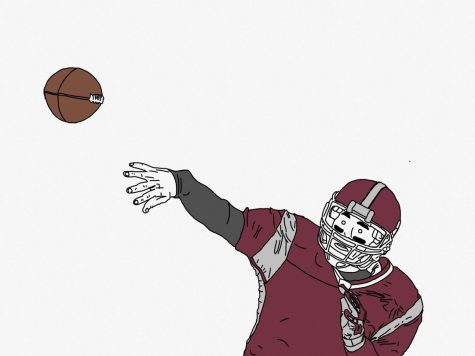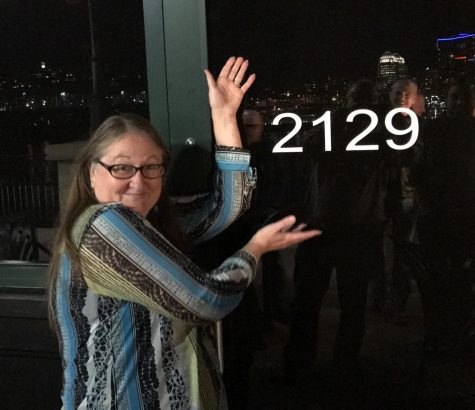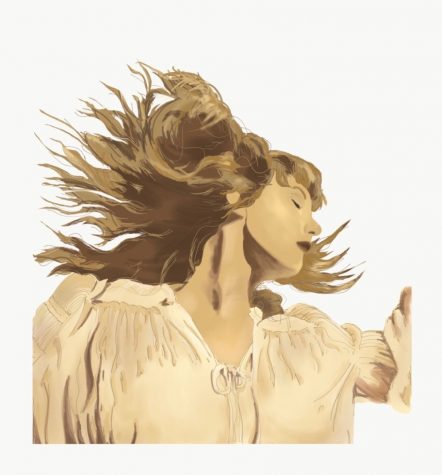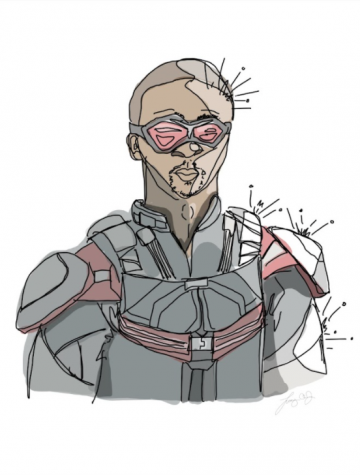Claremont performing arts programs transition to Zoom
Shafts of gray light shine through the windows of empty spaces, illuminating the ghosts of performances past: lively comedians in red and blue attire, rowdy trumpeters and saxophone players, high schoolers morphed into Shakespearean Scottish royalty flit between columns of wandering dust particles illuminated by the sun. The various CHS performing arts programs are unable to perform in their usual manner this year, and the visions of in-person ghouls might be all that many imagine when they think of performing arts. Nevertheless, programs such as theater, ComedySportz, and band will cease to be defined by pre-Zoom norms and reimagine their crafts to create enticing new shows online.
All ComedySportz, band, and theater productions will be performed online this year. According to theater program director Krista Carson Elhai, the theater production department will perform “Almost, Maine” in December, selections from “Mamma Mia” in November, student-directed, one-act plays in January, and a play about a Zoom class written by a hired, professional playwright in February. Band director Burke Shouse has, and will continue to, put together audio and video of CHS band performances by collating and syncing videos of individual performances, as Katie O’Leary, a senior and flute player in the band, explained. ComedySportz is currently practicing weekly, and the team will have their first virtual match in November.
Given the potential for lag and internet problems and the challenges they would pose for timing in band and theater, live performances on streaming platforms are a huge challenge. As a result, the band will not have any live performances (as of now) and the majority of theater productions this year will be recorded in advance and streamed for the public. Some theater productions will be free for audience members, while others will be paid. Despite the drawbacks of remote performances, there are also clear benefits to having pre-recorded, virtual plays. Eila Planinc, a senior, and the president of Claremont’s Thespian Troupe 2129, hypothesizes that since it takes much less effort to attend a virtual production, audiences will swell in number. Sam Willard-Van Sistine, a senior, and the ComedySportz Manager, agrees, and expects to see audience members from around the country tune in to see family and friends perform.
In addition to an increase in attendance, Planinc also predicts an uptick in the quality of acting as a result of recorded performances.
“I think the quality of performances is going to be pretty high, really, because it’s a relatively simple thing to do; you need a white background, some lights, and then you just get to perform,” Planinc said. “I think the performances themselves are going to be really good.”
Although Willard-Van Sistine acknowledges that the absence of an audience will fundamentally alter the traditionally central role that they play in ComedySportz, he also foresees the team to grow during this online period. Being online has allowed the team to focus solely on the games in and of themselves, because ComedySportz LA, the professional ComedySportz organization, is handling logistics and ticket sales this year. Holding matches virtually has forced the whole team to be familiar with new games and procedures — not just the new players. Willard-Van Sistine believes that the rigorous training the team is being put through will strengthen their performances and that the new players this year have a lot of potential.
Remote ComedySportz matches will lack aspects of the pre-Zoom performances, but new elements of improvisation will be available to the players as well.
“I think people being able to see a show like this work would be a great demonstration of how improv should be done, because improv isn’t something where you need to have a set circumstance for it to work — and this is not a normal circumstance,” Willard-Van Sistine said. “Zoom has its own benefits and little funny things you can do: you can turn your camera on and off; you can rename yourself; people have turned off their cameras and started whispering, and it fit perfectly into the scene because of how they established their characters. That was a really exciting thing for me to see: Like, ‘Oh hey, this ‘Zoom thing’ can actually allow for new, fun things to work in ComedySportz.’”
Similar to the training of ComedySportz players in the mechanics of games and remote rules, the band is also using the pandemic as an opportunity to grow through basic training. Usually, the band would be in full swing, playing music together, in person. But with Zoom lag, playing together is impossible. Thus, the band is working on improving as individual players so that when they can play together once again, they are more competent as a collective.
“A good thing is that we’ve been able to go back to the basics and really double down on our technique,” O’Leary said. “Normally, we’re so focused on competitions and performances that we don’t really focus on knowing scales and learning rhythms — things that are kind of boring, but they’re important. So I think being able to focus on the fundamentals, while not everybody’s favorite activity, is probably good for us in the long run, and that is mainly what we’ve been doing over Zoom.”
O’Leary also mentioned that in the future, orchestra, color guard, and percussion groups could possibly meet in person with masks, but because of the nature of the band’s instruments, they would not be able to wear masks while practicing. There are attachments to instruments built to make playing music safer during the pandemic, but buying them would cost the school a lot of money. For the time being, the band is focused on putting together recordings for future performances. Notwithstanding the challenges faced by the performing arts of ComedySportz and theater production in transitioning from what worked physically to what will work virtually, the process will certainly make for a stronger theater program.
O’Leary, Willard-Van Sistine, and Planinc all highlight the difficulties their groups faced in welcoming newcomers into the fold-over Zoom, and the same difficulty can be generalized to every campus organization and to CHS as a whole, with freshmen being the primary newcomers. With the possible disconnect between newcomers — and students in general — and the high school community during this time, one way to connect with the campus again in the coming months will be to remotely attend a CHS performance and marvel at the talent and hard work of incredible student performers.
Hello there! Our goal is to provide relavent, engaging journalism for readers of all ages. Your donation will support the student journalists of the Wolfpacket at Claremont High School, and will allow us to purchase equipment, print our monthly issues, and enter in journalism competitions. We appreciate your consideration!
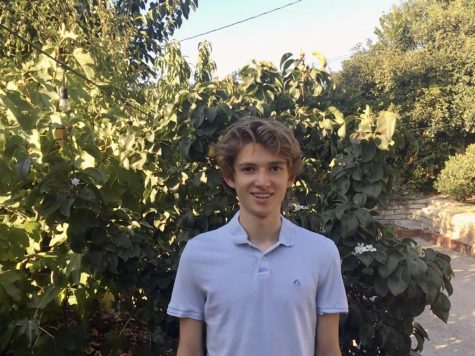
A senior in his third year on the Wolfpacket staff, Rowan Orlijan-Rhyne, occasionally referred to as Rowan “Orange Rind” by his Wolfpacket peers, strives...




